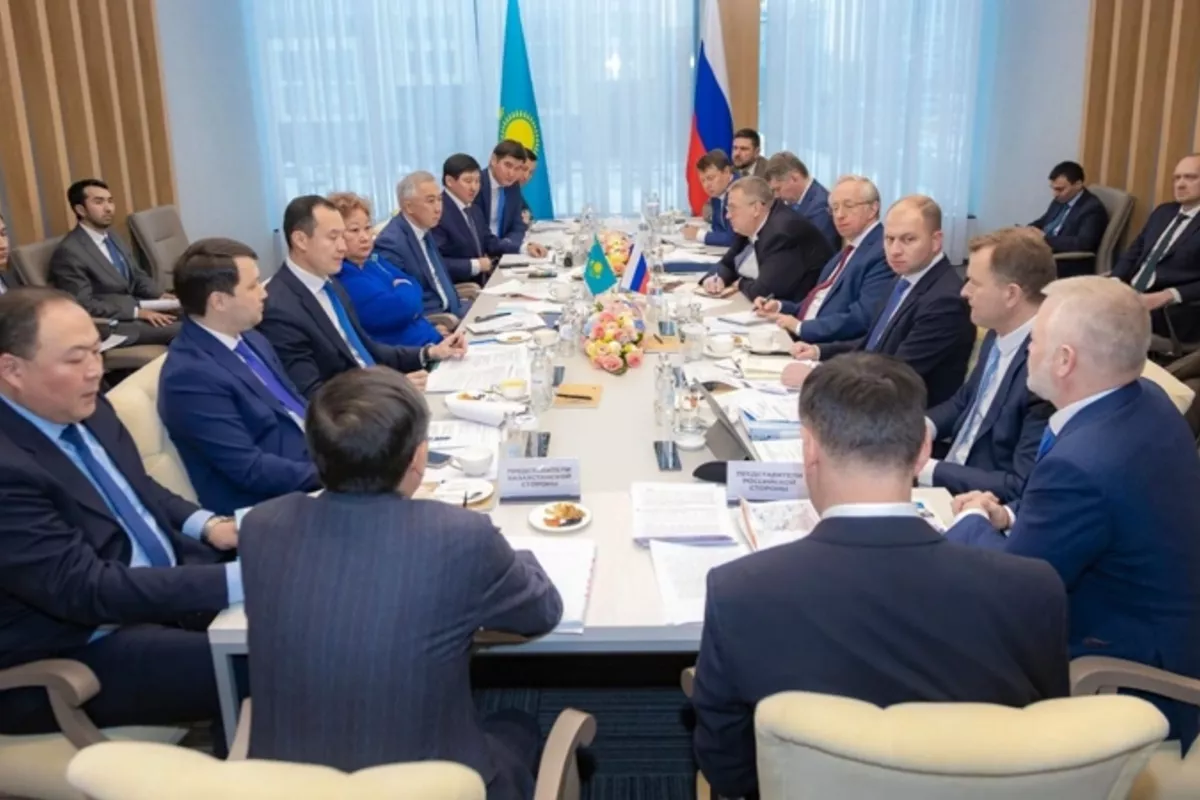
Photo: Primeminister.kz
Astana became the center of attention as it hosted the 26th session of the Kazakhstan-Russia Intergovernmental Commission (IGC), bringing together top officials from both nations to discuss trade, transport, and regional cooperation.
Kazakhstan’s delegation was led by Deputy Prime Minister - Minister of National Economy Serik Zhumangarin, while Russia was represented by Deputy Prime Minister Alexey Overchuk, The Caspian Post reports via Kazakh media.
The sides highlighted transport cooperation as a key priority. Following the launch of the second track on the Dostyk-Moiynty railway section in September, discussions focused on boosting transit volumes along the China-Europe-China corridor.
They also agreed to assess cargo potential at border crossings and continue work on the North-South International Transport Corridor, a major route for freight between Asia and Europe.
Kazakhstan voiced concerns about new Russian migration laws that take effect on January 1, 2025, reducing foreign nationals’ stay from 180 to 90 days without registration.
In response, the Russian side signaled readiness to restore the 180-day limit for Kazakh drivers engaged in international freight transport.
Agricultural cooperation also took center stage. Both sides agreed to develop new, high-yield crop varieties and expand mutual trade in agricultural and food products.
Russia additionally expressed willingness to lift phytosanitary restrictions on Kazakhstan’s flax and lentil seed imports and to permit grain and pulse transit through its territory with temporary storage.
The meeting also touched on collaboration in energy, finance, oil and gas, industry, nuclear power, tourism, education, and ICT.
The session concluded with the signing of the official protocol, and the next IGC meeting is scheduled for 2026 in Omsk, Russia.
Notably, the discussions came shortly after the Eurasian Fund for Stabilization and Development (EFSD) inaugurated its new headquarters in Astana - reinforcing the city’s growing role as a hub for regional economic diplomacy.
Share on social media